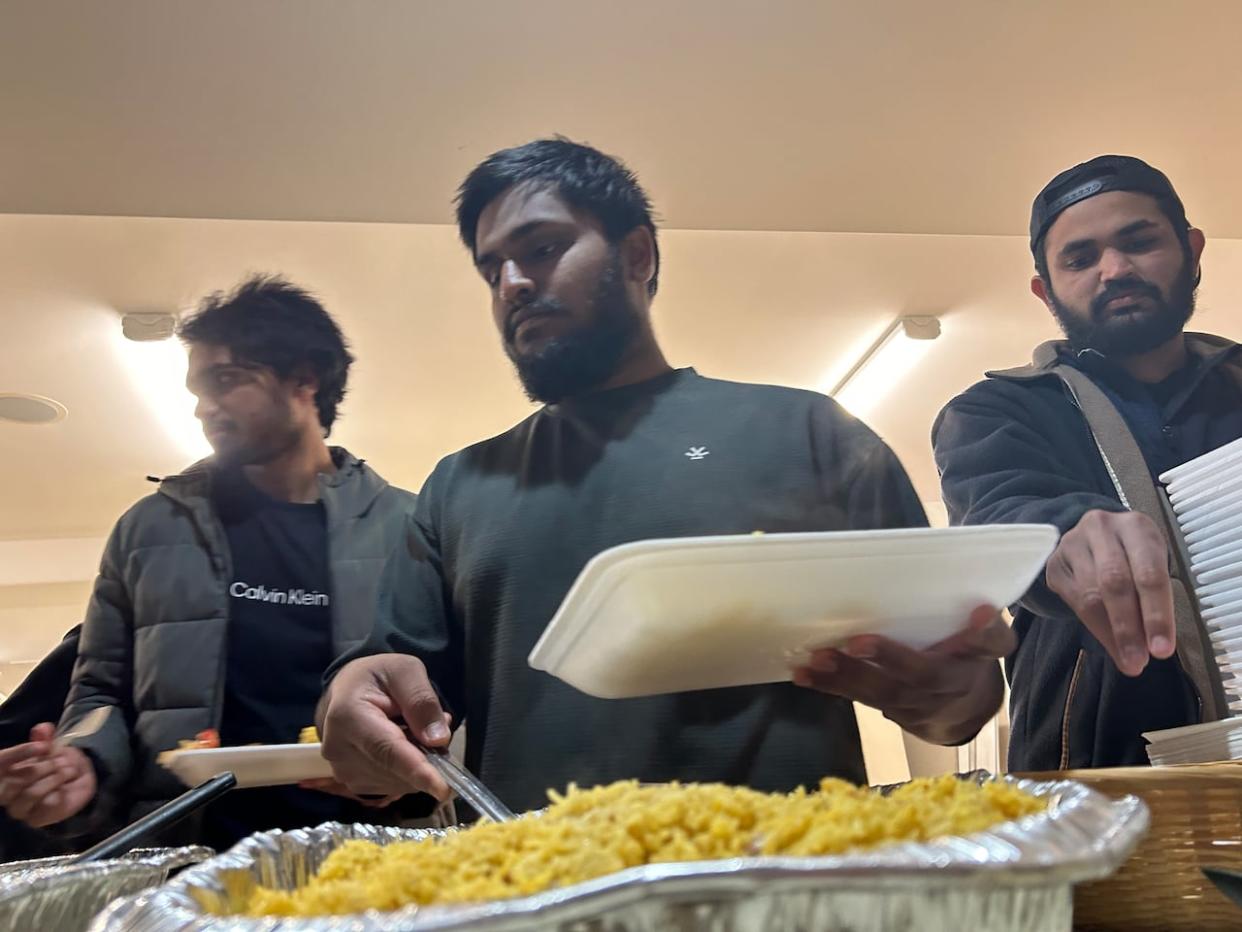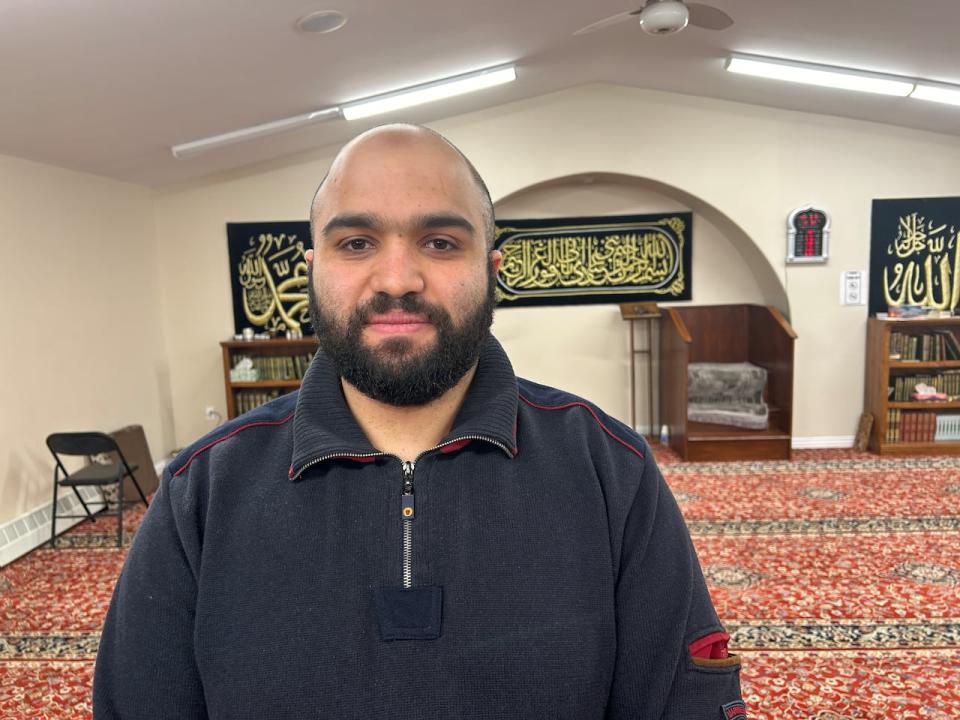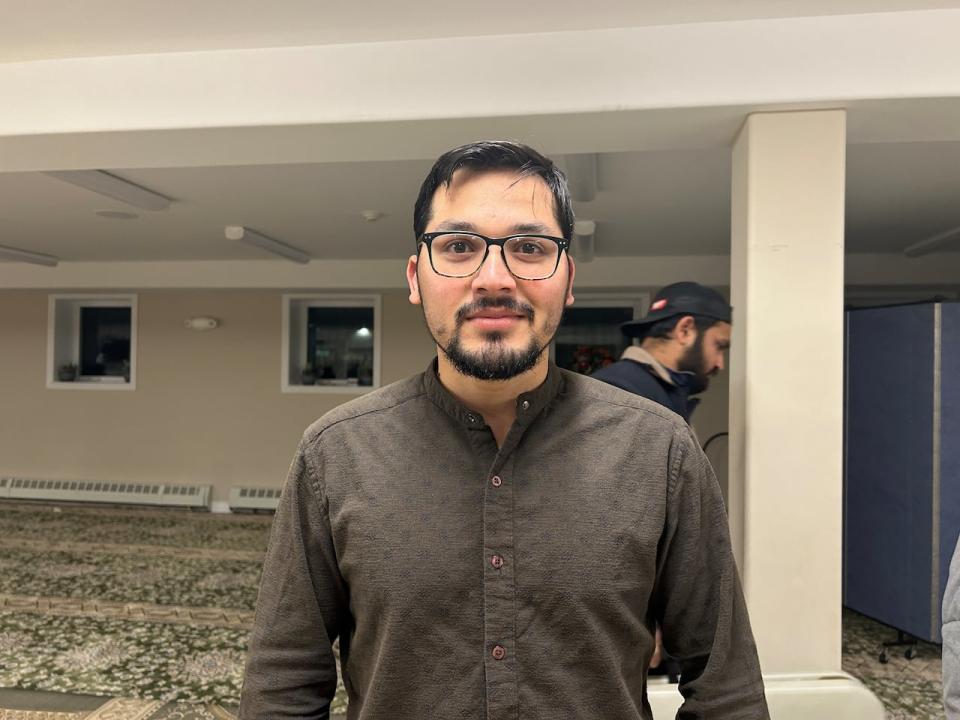A time of fasting, community and charity in nightly gathering at P.E.I. mosque during Ramadan

It's 7:25 p.m. and the sun is about to set. Members of Masjid Dar Al Salaam mosque in Charlottetown are preparing for the daily iftar during Ramadan.
In the basement volunteers have set out tables and chairs with plates of dates, salty snacks and juice.
It's a daily experience for Muslims during Ramadan. During that month, Muslims fast from dawn to dusk with no eating or drinking.
"It's a sort of a spiritual healing for the Muslims, and this is a month where people like to give as much charity as possible," said Najam Chishti, the past president of the Muslim Society of P.E.I.

About 35 people came to the Thursday night iftar at Masjid Dar Al Salaam mosque. (Stacey Janzer/CBC)
When the sun sets it is time for the fast-breaking meal known as iftar. On any given night between 30 and 45 people show up at Masjid Dar Al Salaam for the iftar. It's "the more the merrier," said Chishti, and with help of a couple of volunteer families who cook the food, they do their best to make sure everyone gets to eat.
Ramadan is a time of charity, iftar is a time of community, and the two come together nightly at the mosque.
"We try to keep the students who have been living here on the Island to have a sort of a family gathering, so they don't feel alone," said Chisti.

Omar Shokr volunteers at the mosque. He said after coming to Canada and leaving his family it was events like this that made him feel like part of the community. (Stacey Janzer/CBC)
Omar Shokr is one of the volunteers who helps set up for the iftar. He said there's a big international community on P.E.I, but not everyone is with family.
"It's kind of a requirement for us to make them feel like they are a part of a family. So we try and do our best there," he said.
At home, Shokr said Ramadan is different, especially the first day. He said it's usually a big celebration with the whole family where they enjoy their time together for the entire day up to sunrise and then prepare to fast again.
"So coming here to the Island, you kind of lose a bit of that, but eventually you find the community to fit in to kind of replace it. Obviously it's not going to place 100 per cent, but it does the job as necessary," he said.
Shokr was alone in his dorm room for his first Ramadan here. He said he's doing his part so people who are new to the Island don't face the same hardships he did.

Shahid Afridi said coming to iftars was a way for him to build relationships with new people. (Stacey Janzer/CBC)
"At the very beginning you might not have a community to interact with," he said.
"But once I've gotten to know the Muslim community and the Muslim societies around the island, I started integrating myself into the whole community."
There were events and gatherings, which Shokr said made him feel like part of the community. Now he's trying to do that for others.
"It's a great opportunity to be one of the people that can help get more people that might be going through similar situations," he said.
Shahid Afridi also attended Thursday's iftar. His family is back in India. He said it feels good to be able to spend time with friends and colleagues when he can't make it home.
"It was really a good feeling to come here. But whenever I'm not here, I usually feel like I'm sitting home breaking fast, then at that point of time I really miss my family," he said.
"When I'm here I feel happy about coming here.".
Attending events was also a way for Afridi to make new bonds with new people.
"When I moved here at first, I didn't know anybody here," he said.
"When I came to the mosque and saw people here, I made connections. It helped me academically, professionally, and it really helps to understand the beautiful island and its people and the culture."

 Yahoo News
Yahoo News 
